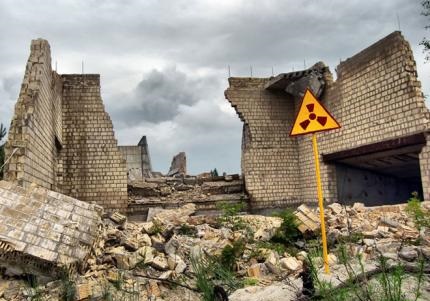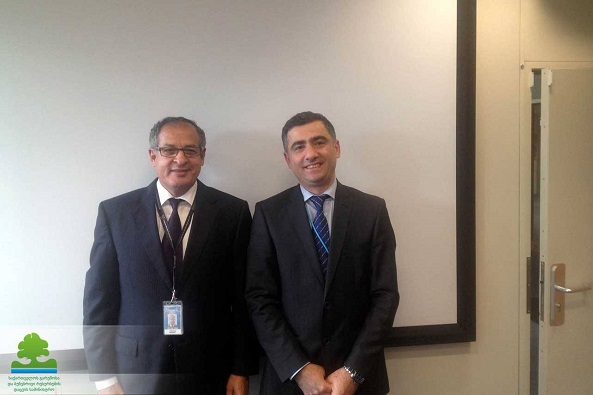Georgia’s nuclear safety in focus at International Atomic Energy Agency

Georgia’s nuclear safety policy was on the agenda at a special meeting in Austria where a top official from the Ministry of Environment Protection of Georgia met with key international players in the global nuclear energy sector.
Head of Georgia’s Nuclear and Radiation Safety Department of the Ministry of Environment Protection, Vasil Gedevanishvili, discussed Georgia’s current policy and future intentions regarding nuclear safety with head of the International Atomic Energy Agency (IAEA) Safety and Security Coordination Section, Khammar Mrabit.
The IAEA is an international organisation that seeks to promote the peaceful use of nuclear energy and to inhibit its use for any military purpose, including nuclear weapons.

Head of the International Atomic Energy Agency (IAEA) Safety and Security Coordination Section, Khammar Mrabit with head of Georgia’s Nuclear and Radiation Safety Department of the Ministry of Environment Protection, Vasil Gedevanishvili. Photo by Ministry of Environment of Georgia.
At today’s meeting at the IAEA headquarters in Austria’s capital Vienna, the sides discussed ways to improve Georgia’s nuclear safety, after which Gedevanishvili provided Mrabit with a copy of the country’s 2015-2019 Nuclear Safety Support Integrated Plan.
The main idea of the document was to protect the population from the harm produced by nuclear technologies and radiation through collaborative efforts.
The five-year document was jointly developed by Georgia’s Environment Ministry, Foreign Ministry, Defence Ministry and Economy Ministry. The Plan covered activities already carried out in Georgia to promote nuclear safety and the country’s future intentions, which should be met through joint activities of domestic state structures and international bodies.
The IAEA is more commonly known as the United Nations’ Atoms for Peace organisation. Established in 1957 as the world's centre for cooperation in the nuclear field, the Agency worked with its member states and global partners to promote the safe, secure and peaceful use of nuclear technologies.
 Tweet
Tweet  Share
Share